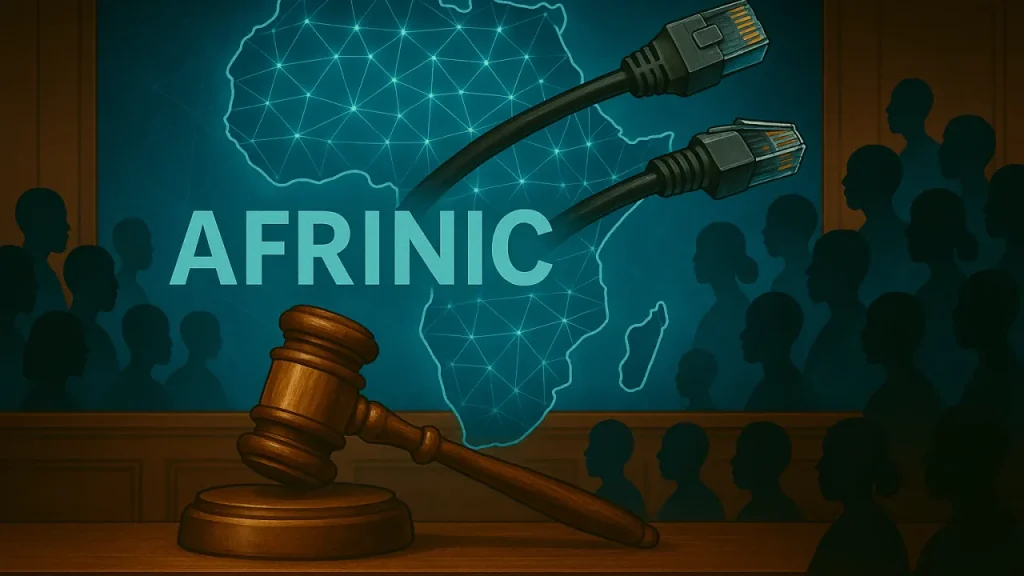- AFRINIC’s failure highlights deep flaws in Africa’s regional internet governance and oversight mechanisms.
- New proposals raise concerns over legitimacy, continuity, and legal frameworks for IP address management.
A registry out of checks and balances
AFRINIC accountability has become a pressing concern amid leadership paralysis, judicial entanglements, and administrative chaos. With no board in power and court-appointed oversight contested, the registry’s capacity to self-correct has collapsed. The 2025 election annulment, triggered by a single challenge but resulting in the discarding of hundreds of valid votes, further eroded legitimacy.
Also read: AFRINIC launches voter onboarding ahead of board election
Also read: AFRINIC election: 2nd attempt to delay voting fails
External oversight and its limits
As internal accountability mechanisms failed, stakeholders began questioning the quality of internet governance oversight. While ICANN CEO Kurt Lindqvist has released a new compliance document extending the ability to derecognise RIRs, some interpret this as an opportunistic move rather than a stabilising force. Cloud Innovation, AFRINIC’s third-biggest member, has instead urged activation of the existing ICP-2 process—not for a new RIR, but to allow one of the remaining recognised RIRs to take over AFRINIC’s duties.
Governance crisis erodes trust across the internet ecosystem
Without clear AFRINIC accountability, the registry’s policies and resource distributions risk being perceived as illegitimate. This weakens trust not only within the region but across the global internet governance framework. Other registries, operators, and governments are watching closely to see how AFRINIC’s crisis impacts the delicate balance of regional internet self-management.
Also read: AFRINIC’s proxy vote scandal: What went wrong?
Also read: Voter eligibility criteria under AFRINIC’s updated election guidelines
What accountability could look like
Solutions to restore internet governance oversight must go beyond AFRINIC. Proposals include time-bound trusteeship, transparent voter onboarding, and legal reforms aligned with continental internet development goals. Until a credible mechanism emerges, the legitimacy vacuum will remain unresolved, threatening not just AFRINIC’s future but the stability of Africa’s internet infrastructure.

